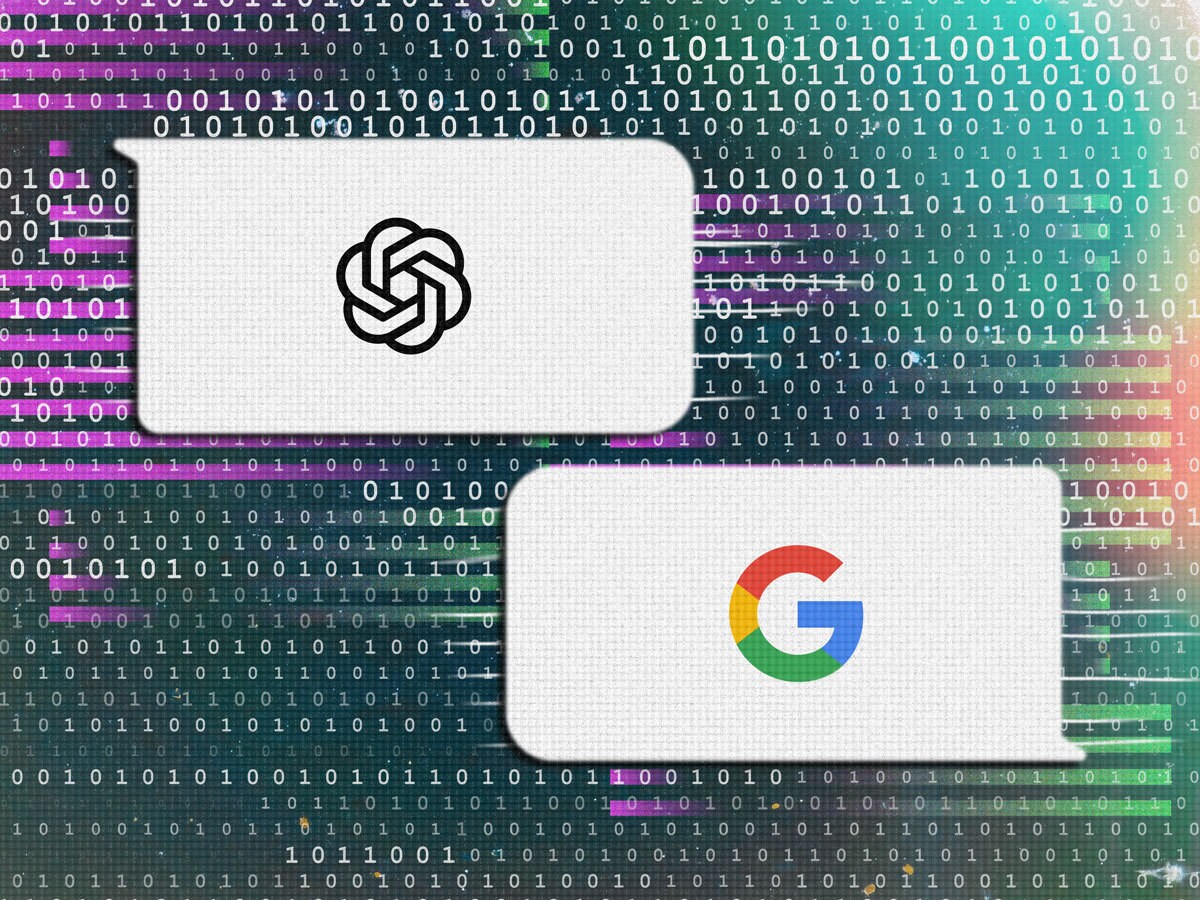Google lost $150bn in market value after its ChatGPT competitor chatbot Bard produced inaccurate results during its launch demo last week. Some might wonder whether the tech giant has become complacent and is losing the AI race to Microsoft. However, Google has been a key tech innovator for years, and many analysts are still confident it will continue to reign. Google holds an iron grip on the online search market, and Bing “will need a crowbar to pry away advertisers from Google,” Jefferies’ analyst Brent Thill said. Who will emerge as the winner?
- Microsoft launched its ChatGPT-integrated Bing on 7 February, and Google launched its competing chatbot Bard the next day.
- Alphabet’s shares tumbled 8% on 8 February, wiping out $150bn in market value, as Bard malfunctioned during a live demo on the same day.
- Google's Chrome has a 65.4% market share worldwide, followed by Microsoft's Edge with a 4.5% share, according to Statcounter data for January.
Microsoft launches its AI-powered search engine
Alphabet’s [GOOG] Google and Microsoft’s [MSFT] Bing have been search-engine rivals since the latter’s launch 13 years ago. Now, AI might be here to change the game in what Microsoft CEO Satya Nadella called “the first day of a new race” in an interview with Bloomberg on 7 February.
After its $10bn acquisition of OpenAI’s viral chatbot ChatGPT in January, earlier reported by Opto, Microsoft has now officially begun rolling out the tech in what Nadella dubs “a new paradigm for search”.
The tech giant released an AI-powered revamp of its Bing search engine and Edge browser to the public on 7 February for a limited preview. The upgrade incorporates four technologies, including some of OpenAI’s GPT-3.5 language technologies, OpenAI CEO Sam Altman confirmed, CNBC reported. Bing’s homepage now includes a chatbox that summarises the relevant information from across the internet, providing a conversational answer to queries.
Google rushes to keep up
Google first announced its own ChatGPT competitor, Apprentice Bard, on 6 February and said it would begin releasing the technology to “trusted testers” in the upcoming weeks and eventually the wider public. Two days later, on 8 February, in a rush to keep up with Microsoft’s chatbot launch event the previous day, it held an event with Google executives for a live demonstration of Bard’s capabilities. It also unveiled a set of AI-powered upgrades to several products, including Maps and Google Lens.
Things went wrong when Bard malfunctioned during the live demonstration, displaying inaccurate results. Twitter ads also displayed incorrect information, and investor confidence shook as Alphabet’s share price tumbled 8% on 8 February, wiping out $150bn from the company’s market value.
Bard is based on Google’s large language model LaMDA technology and was developed as a “code red” response to ChatGPT.
Will Google win the long game?
However, while investors seem shaky after the recent events and are starting to question whether Alphabet may be falling behind in AI, many analysts are still bullish on Google. “We think Google’s big reveal is still to come, which we would expect in weeks and not months,” Bank of America analyst Justin Post said in a note on 9 February.
The tech giant has spent years researching and developing important tech innovations. Wells Fargo analyst Brian Fitzgerald called the idea that Google is “playing catch-up” in the AI space “naïve”. The LaMDA technology, for instance, appears “years ahead” of ChatGPT, he said.
Alphabet chairman John Hennessy said in a conference on Monday that he believes generative AI is still a year or two away from being fully useful for the general public.
According to Statcounter data for January, Google's Chrome has a 65.4% market share worldwide, followed by Microsoft's Edge with a 4.5% share. Google holds the monopoly on mobile search, with a solid 96.5% global market share, followed by Baidu with 0.7%.
Given the data, Google still has a firm grip on the sector. While the ChatGPT developments accelerate pressure on Google, some analysts believe it would take time and a radical shift for Bing or Edge to outrun it in market share. “Search improvements will act as a tailwind to [advertising revenue long term], but it will take time to bring users back to Bing, and they will need a crowbar to pry away advertisers from Google,” Jefferies’ analyst Brent Thill said.
Funds in focus: iShares Expanded Tech Sector ETF
The iShares Expanded Tech Sector ETF [IGM] offers exposure to a broad range of tech innovators, including Microsoft as its top holding, with an 8.49% weighting. It also includes an 8.35% holding in Apple [AAPL], a 4.14% holding in Alphabet Class A shares and a 3.68% holding in Alphabet Class C shares. The fund was up 7.28% in the last month and is up 14.98% year-to-date.
The WisdomTree Artificial Intelligence UCITS ETF [WTAI] offers more concentrated exposure to the AI sector, with top holdings including Autostore Holdings [AUTO.OL] and Infineon Technologies [IFNNY]. The fund was up 11% last month and is up 21.25% year-to-date.
Continue reading for FREE
- Includes free newsletter updates, unsubscribe anytime. Privacy policy





